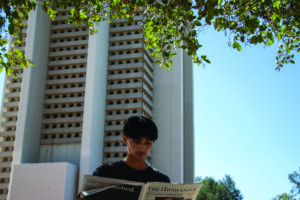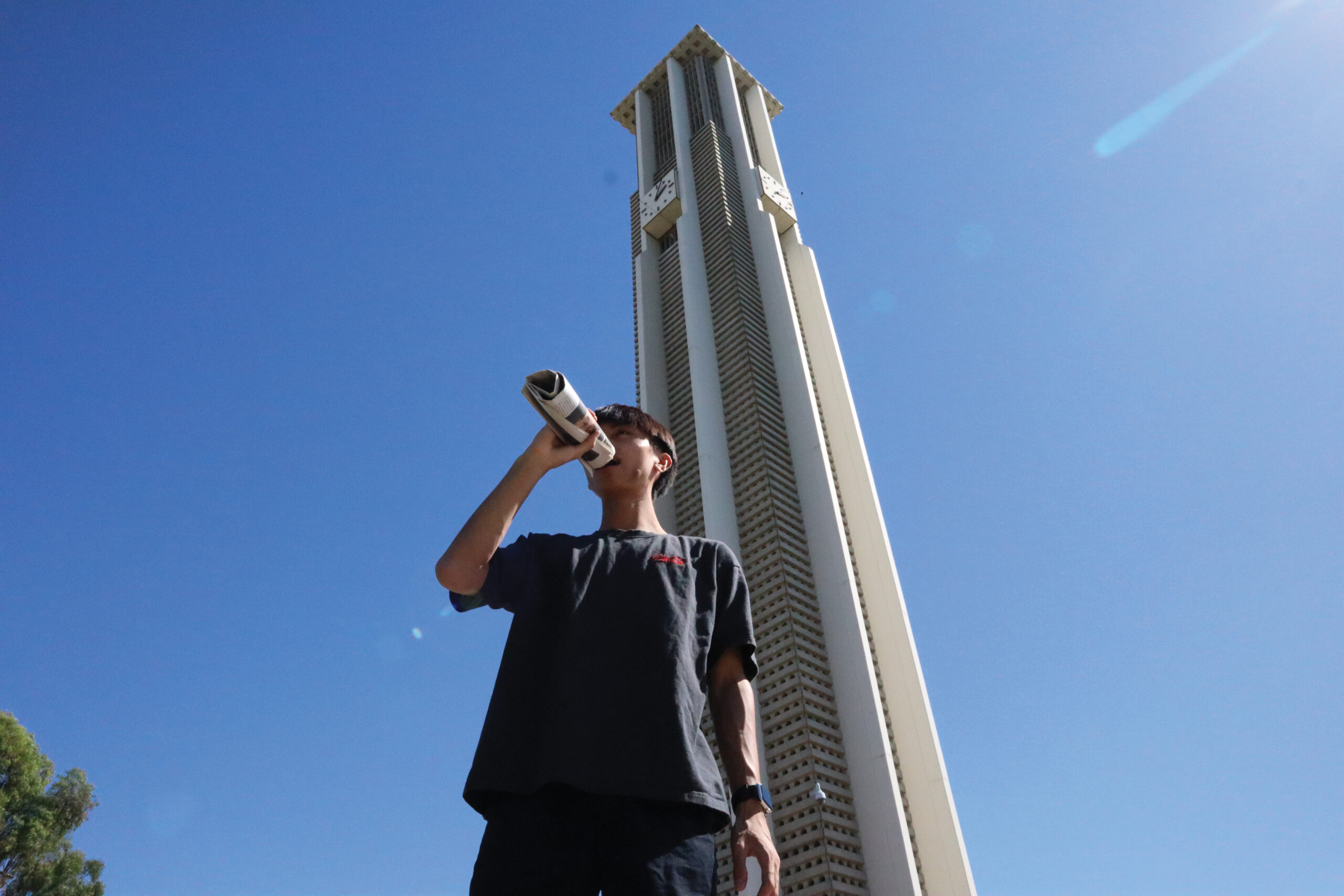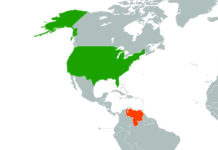
Freedom of speech has long been a fundamental aspect of the United States’ identity, particularly on college campuses where students have historically led protests and driven social movements across the country.
From the anti-Vietnam War demonstrations of the 1960s to the recent Gaza Solidarity Encampments, student activism and the right to free speech have compelled leaders to take accountability and enact meaningful change.
However, under the second Trump administration, the boundaries of what people can say publicly — without fear of retaliation — are now changing. According to CalMatters, international students on University of California (UC) campuses are censoring themselves by changing “the routes they take on campus, the topics they research and what they post on social media.”
This chilling effect follows a string of international student visa revocations by the Trump administration in recent months. In April 2025, former Chancellor Kim A. Wilcox announced that the federal government had revoked six UC Riverside (UCR) international student visas — two currently enrolled students and four alums.
Without a valid enrollment status or visa, international students could face federal immigration enforcement. Publicly speaking on issues that Immigration and Customs Enforcement (ICE) deems as a threat to “public safety” or “national security” can put these students at risk of becoming targets of deportation.
And it’s not just international students who are affected. Minority students, including undocumented individuals or those from mixed-status families, are also highly vulnerable due to their immigration status.
As a minority-serving institution with 58 percent of its undergraduate students being first-generation, UCR is profoundly impacted by these federal actions. The Trump administration’s attacks on free speech and immigration policy do more than silence protests; they undermine the very culture of our campus. This hostile environment directly threatens on-campus organizations, such as student journalism, which play a critical role in fostering open discourse and engagement.
UC student newspapers, such as The Aggie at UC Davis and The Guardian at UC San Diego, have reported removing bylines or entire opinion pieces to protect the identities of international students. The Highlander has also made accommodations for students upon request, but this raises serious concerns around credibility, transparency and integrity for student journalism.
At The Highlander, our mission is rooted in the “pursuit of truth, the free exchange of information and ideas and maintaining a fair and independent student voice,” while providing “accurate information relevant to the experiences and interests of our readers.”
But if members of the UCR community no longer feel safe sharing their perspectives freely and truthfully, student newspapers cannot as easily report accurately on what’s happening on their campuses and local communities.
The Editorial Board acknowledges the fear and uncertainty many students and community members are experiencing. The actions taken by the Trump administration against specific groups in this country are cruel, unjust and inhumane.
But silence is complicity.
The opinion and news sections of The Highlander will continue to focus on the UC and UCR administrations, student government and local, state, national and international issues with a critical and factual approach — even if this sparks debate or is considered “controversial.”
The safety of our writers and sources is our top priority, and we are committed to taking the necessary steps to protect them. However, this will not stop us from continuing to publish student voices, especially those that may be challenging to hear.
At the end of the 2023-2024 academic year, The Highlander Editorial Board published a statement highlighting the importance of student protest at UCR and the real change it brought about. This includes initiatives such as the Young Democratic Socialists of America (YDSA) petition to end UCR’s licensing agreement with Starbucks, as well as on-campus protests urging the UC Board of Regents to pass Policy 4407, also known as the Opportunity for All Plan.
As we begin a new academic year, it’s essential to re-engage in that activism and not to remain silent. Student voices and protests matter now more than ever.
If you are a member of the UCR community and would like to share your story as a writer or source, we welcome you to visit our office or email us at editorinchief@highlandernews.org.
Your voices are essential, and at The Highlander, we will continue to ensure they are heard.







